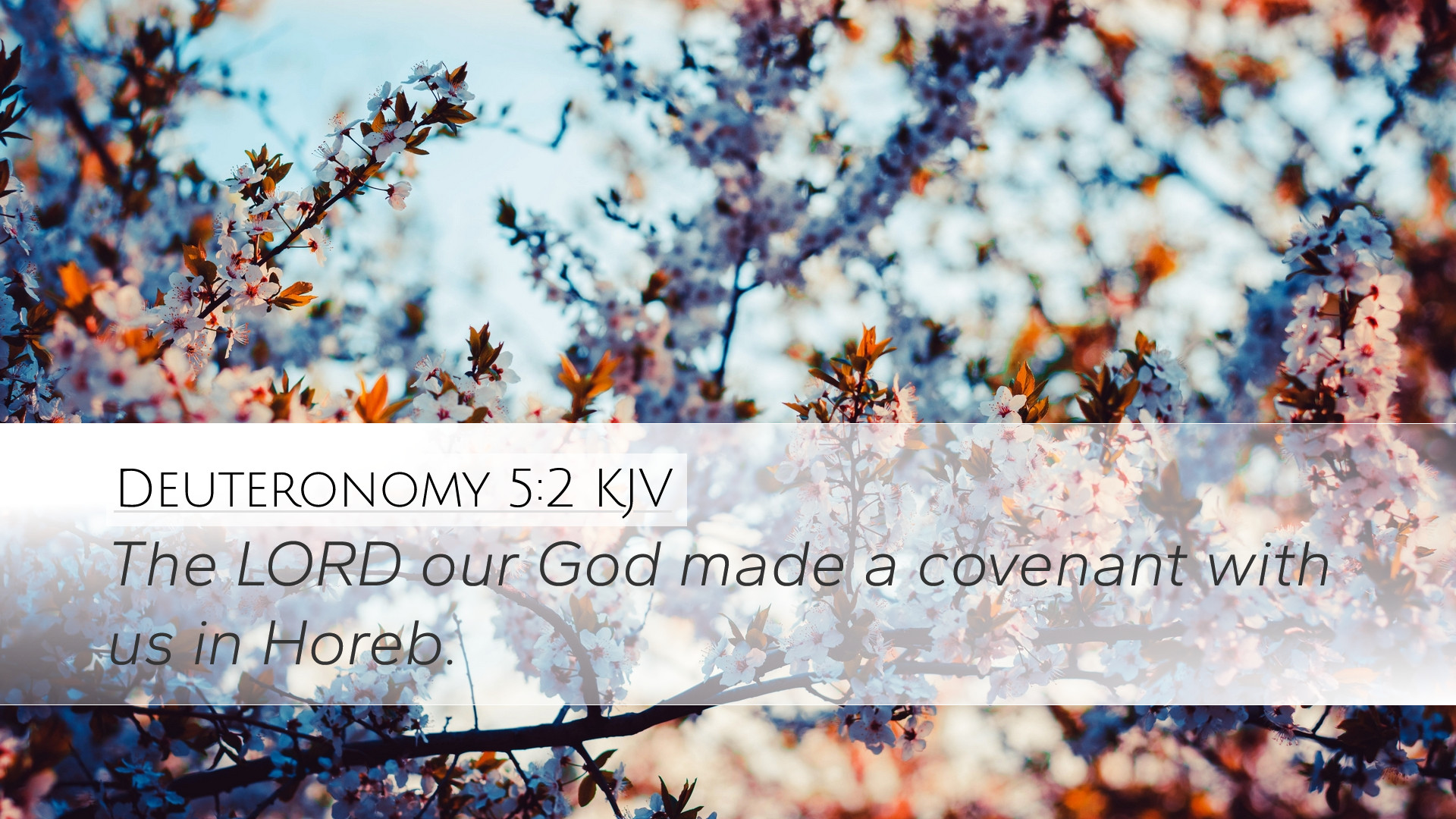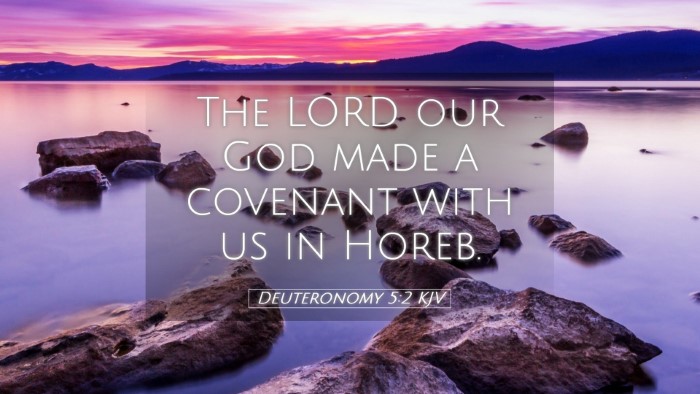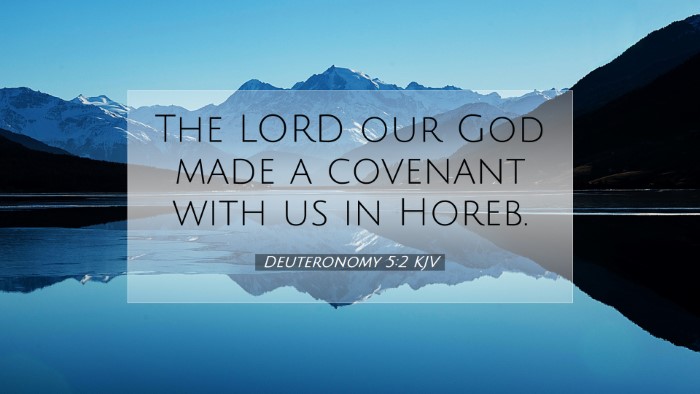Commentary on Deuteronomy 5:2
Verse Overview: Deuteronomy 5:2 states, "The LORD our God made a covenant with us at Horeb." This brief yet profound declaration encapsulates the essence of God's relationship with His people, the significance of covenant theology, and the character of God as a covenant-keeping deity.
Historical Context
Significance of Horeb: Horeb, also known as Mount Sinai, is the mountain of God where significant revelations and covenant ceremonies took place. It is here that God delivered the Ten Commandments to Moses, establishing the foundational ethical and moral framework for the nation of Israel.
The Covenant's Importance: In the ancient Near Eastern context, a covenant between a deity and a people was a momentous event, often involving promises, laws, and commitments. The covenant made at Horeb marks a critical point in Israel's identity as a nation chosen by God.
Theological Insights
Covenant Theology
Covenant Defined: The term ‘covenant’ implies a bond of loyalty and mutual responsibility. God’s covenant with Israel is not merely transactional; it reflects an intimate relationship where God promises to be their God, and they, in turn, are to be His people.
- Divine Initiative: The covenant's establishment showcases God's initiative. He chooses His people, emphasizing grace and unmerited favor.
- Responsibility of the People: Along with the promises comes the expectation of obedience, as detailed in the subsequent chapters of Deuteronomy.
The Character of God
Faithfulness: God's unchanging nature is a pivotal theme in the covenant narrative. Public domain commentaries highlight that this faithfulness is evident in His commitment to uphold the covenant despite Israel's failures.
Justice and Mercy: The covenants also reveal God's attributes of justice, as He calls His people to righteousness, and mercy, as He provides a means for atonement and forgiveness.
Comparative Analysis with Other Scriptural References
Exodus 19:5-6: This passage reaffirms the covenant’s conditions: “Now therefore, if you will indeed obey my voice and keep my covenant, you shall be my treasured possession among all peoples.” It emphasizes the mutual expectation inherent in covenant relationships.
Hebrews 8:6: The new covenant through Christ offers a fulfillment of the original covenant, highlighting God's ongoing commitment to His people, extending grace and inclusivity beyond the confines of the Law.
Application for Today
Lessons for Contemporary Believers: The covenant at Horeb serves as a poignant reminder for modern Christians about their relationship with God through Christ.
- Understanding of Grace: The grace demonstrated in the covenantal love of God should inspire believers to reflect grace in their relationships.
- Commitment to Obedience: The call to obey God's commandments remains relevant, urging believers to live according to His word.
- Covenant Community: The church, as the body of Christ, embodies this covenantal relationship, fostering community and accountability.
Reflection and Conclusion
This verse encapsulates a monumental aspect of biblical theology. The covenant at Horeb is foundational for understanding the nature of God, the responsibilities of His people, and the ongoing relevance of divine commandments in the life of believers today. As pastors, theologians, and scholars reflect on Deuteronomy 5:2, it invites a deeper consideration of the implications of living in covenant with a faithful God.


